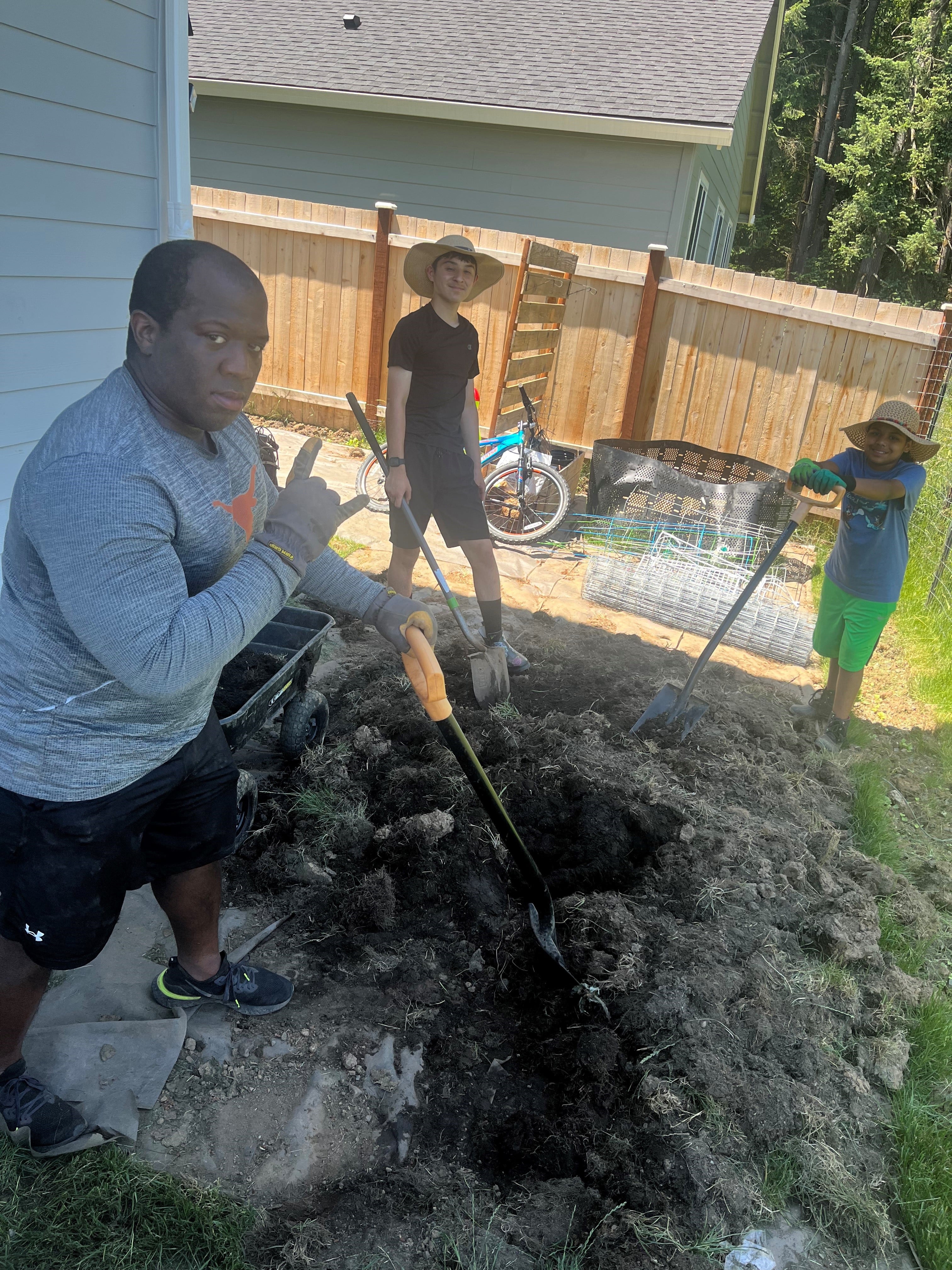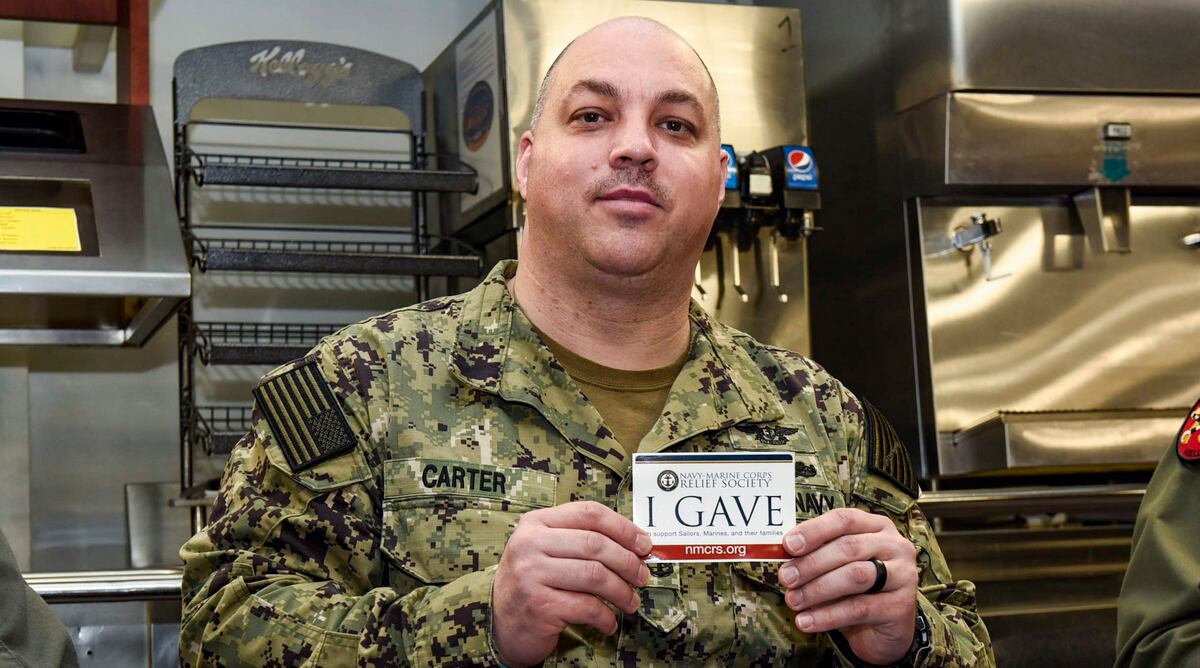Inflation is “destroying any pleasure we might have been capable of afford,” the airman wrote. “We are actually greedy at pennies to outlive and it’s killing us.”
Statements from the airman — stationed at Holloman Air Power Base, New Mexico — and lots of others got here in response to Navy Occasions’ name for feedback on how inflation has impacted service members and their households.
Most responded with a typical theme: Households are “slicing again” or “eliminating” every little thing from grocery procuring and driving to subscription providers, holidays and consuming out.
Shopper costs have been up by 3% from June 2023 to June 2024, based on the Bureau of Labor Statistics. That’s on prime of inflation over the earlier a number of years.
“Actually turning a visit to McDonald’s into an enormous occasion. How unhappy is that?” wrote Airman 1st Class Onorio Franco Jr., stationed at Holloman AFB.
“A visit to McDonald’s for my spouse, 1-year-old daughter and myself is upwards of $40. That’s only one meal,” he added. “For 2 6-inch subs and two drinks from the commissary, it prices $20. … Clearly on an E-3 pay we can’t afford to exit and luxuriate in that.”
An Air Power tech sergeant stationed at F.E. Warren Air Power Base, Wyoming, mentioned he and his spouse are spending twice as a lot on groceries at their native grocery retailer as they have been in 2021.
As soon as per week they’re spending a median of $200 to $210 — in comparison with $100 to $130 in 2021 — for his or her household of 4 kids.
Melissa Godoy’s husband is an Military sergeant first-class stationed at Joint Base Lewis-McChord, Washington.
“Even at his [E-7] pay, we’re nonetheless barely capable of keep afloat,” mentioned Godoy, who is also a contract grant author with sporadic earnings. “We spend $800 to $900 a month on groceries now. Two adults, two children. That’s virtually twice as a lot because it was in 2019.
“Utilities are overwhelming. We’re behind on electrical energy. Gasoline is $3.50 to $4.40 a gallon. You must discover a budget gasoline stations. My husband drives 40 minutes to and from work daily. He spends $400 a month only for gasoline.”
They, too, are doing “a variety of eliminating, and that’s not honest for us. … We will’t afford to reside and lower your expenses. One thing at all times breaks, a invoice pops up and is due, one thing is at all times wanted,” she mentioned.
Housing prices stay a difficulty. A Navy E-6 wrote that the latest improve within the Fundamental Allowance for Housing was “extremely obligatory.”
Her expertise sharply illustrates the rising prices. She and her husband are getting ready to maneuver again to a earlier obligation station, the place, simply three years in the past, the identical two-bedroom condo for which she as soon as paid $1,400 a month now prices $2,100 a month, she wrote.
Navy households are adjusting in a wide range of methods. The Godoy household hardly ever eats out, Melissa Godoy mentioned.
“We funds, and keep house as a lot as attainable. Dwelling a gradual, boring life has allowed us to have the ability to make it from paycheck to paycheck.”
An Military sergeant first-class stationed at Fort Campbell, Kentucky, mentioned his household of seven has been “exponentially” affected by inflation and has reduce on the quantity and kind of groceries they purchase, with extra uncooked merchandise and fewer pre-made gadgets.
“We’ve got given up on indulgences by getting no title manufacturers, cheaper cuts of meats, consuming meat much less,” he wrote.
They’ve additionally reduce different gadgets from their funds, resembling streaming or subscription providers, as a way to afford groceries.
The E-7′s household now does extra comparability procuring and drives to totally different shops, however buys in bulk to save cash on gasoline by making fewer journeys.
Holidays, in the meantime, have been drastically reduce if not eradicated altogether.
“We now solely do holidays nearer to house and solely every year,” wrote the Fort Campbell soldier.
“It’s completely ridiculous to consider planning a visit, going to an occasion, and even shopping for something particular when our strict funds nonetheless holds us right down to beneath $200 on the finish of months,” the airman first-class mentioned. “How are we supposed to save lots of, purchase toys for our daughter [or] go go to household to share these moments along with her grandma and grandpa?”

Some navy households have made different life-style modifications.
“Our household has gone to nice lengths to preserve monetary assets and stretch each greenback,” mentioned America Lunsford, who lives along with her two kids and husband, an Military workers sergeant.
Final 12 months, they took benefit of the VA mortgage for his or her new house. Their homeschool curriculum features a house backyard for recent greens that’s additionally the muse of their ninth-grader’s farm-to-table bistro startup.
They’ve researched the very best strategies for meals preservation to reduce waste, and have began a compost to offer vitamins to the backyard. They use washable napkins, develop their very own loofah sponges, and upcycle issues like glass jars and mesh produce luggage. Many different wants are met by way of neighborhood networking and native nonprofits.
“Sustainable giving/buying and selling, repurposing gadgets or procuring second hand is one other means we apply sustainability and restrict wasteful spending,” she mentioned.
Their single-income, single-car family has additionally transitioned their medical care to suppliers that provide telehealth choices as a way to decrease gasoline and time.
They reap the benefits of rewards applications and memberships, however store native when attainable.
“We additionally evaluate insurance coverage insurance policies yearly to regulate for worth hikes and examine prices,” she mentioned.
Assistance is on the market
Inside and out of doors the navy neighborhood, there are assets to assist navy households stretch their {dollars}.
Melissa Godoy administers a Fb group in her native Joint Base Lewis-McChord space, referred to as JBLM household assets, “the place I direct households to meals banks, diaper banks and free assets to have the ability to make it from each day,” she mentioned.
“Navy households are in dire straits proper now,” she added.
Navy reduction societies are longstanding assets out there to assist navy households with emergency monetary help.
Relying on the scenario, Military Emergency Aid, Air Power Support Society, Navy-Marine Corps Aid Society and Coast Guard Mutual Help present grants service members don’t must pay again, in addition to zero-interest loans.
“The necessity is clearly there as requests maintain regular with the financial system affecting a considerable amount of energetic obligation and retired populations,” mentioned Sean Ryan, a retired Military colonel and spokesman for Military Emergency Aid.
This 12 months, Military Emergency Aid has helped greater than 13,800 energetic obligation troopers and households with almost $27 million in monetary help. One other 11,800 retired troopers have acquired greater than $26 million in help.

“If a soldier is at a degree the place they should go to a meals financial institution, we urge them to come back to AER for help instantly, they usually don’t must undergo their chain of command,” Ryan added. “Supporting troopers is the explanation we exist and these are troublesome occasions.”
Meals insecurity usually ranks quantity 9 or 10 general in help classes, however within the final two years it’s moved as much as quantity 6, Ryan mentioned.
“So, [it’s] positively one thing we’re listening to and in search of methods to offer extra assist.”
Many different organizations in and across the navy neighborhood step as much as assist navy households with monetary help. The Navy Household Advisory Community holds periodic meals distribution and different occasions for navy households; plenty of meals pantries close to navy bases work with native navy households.
For instance, the nonprofit Stronghold Meals Pantry in Leavenworth, Kansas, gives wanted gadgets for navy households by way of donations from teams and companies, resembling Armed Forces Financial institution.
“We see firsthand, they will’t sustain with the demand, whether or not it’s diapers or peanut butter,” mentioned Tom McLean, senior vice chairman and navy govt at Armed Forces Financial institution.
The financial institution at the moment has branches on 11 navy installations across the nation, one outdoors the gates at Fort Riley and another within the neighborhood of Fort Leavenworth.
Many organizations deal with help for junior enlisted households, resembling Armed Providers YMCA and Operation Homefront, which runs family-focused occasions like back-to-school drives, vacation meal distribution and child showers. The group is anticipating to distribute 20,000 backpacks this summer season.
However one specific measure Operation Homefront gives is a gauge of how inflation is affecting navy households.
The group’s Important Monetary Help program helps households with instant wants, resembling lease, utility and automobile funds, with its important focus towards lately separated personnel and wounded or in poor health service members.
“The variety of Important Monetary Help requests have adopted inflation’s pattern, with housing, meals, and utilities help being essentially the most frequent kinds of wants we’re seeing,” mentioned April Postell, the nonprofit’s senior director of the Important Monetary Help division.
For the reason that program’s 2012 launch, greater than 57,000 requests have been crammed, totaling $42.5 million in vital monetary help, mentioned retired Air Power Brig. Gen. Bob Thomas, the nonprofit’s president.
“We had a fairly predictable demand till COVID, then the demand spiked. It moderated, however remains to be above what it as soon as was,” he mentioned.
Typical requests for help are about $880, he added. Every utility has about three requests, with inflation cited in navy households’ incapacity to save lots of.
“A really excessive share of navy households live paycheck to paycheck,” he mentioned. “Loads … transfer each two to 3 years, and people strikes are very costly.”
“There are a variety of distinctive challenges the navy undergo,” Thomas added. “Ultimately, it means they’re very fragile financially” after they depart the service.
The primary time one thing surprising occurs, resembling an costly automobile restore, it places households in a susceptible spot.
“Our mission is to construct sturdy, secure and safe navy households to allow them to thrive,” Thomas mentioned.
“These households have been there for all of us in our nation’s time of want. We need to be there for them of their time of want.”
Karen has lined navy households, high quality of life and client points for Navy Occasions for greater than 30 years, and is co-author of a chapter on media protection of navy households within the e book “A Battle Plan for Supporting Navy Households.” She beforehand labored for newspapers in Guam, Norfolk, Jacksonville, Fla., and Athens, Ga.










:quality(70)/cloudfront-us-east-1.images.arcpublishing.com/archetype/4GX3EMIJJNC3DMQKVRDLGXGROQ.jpg?w=120&resize=120,86&ssl=1)










